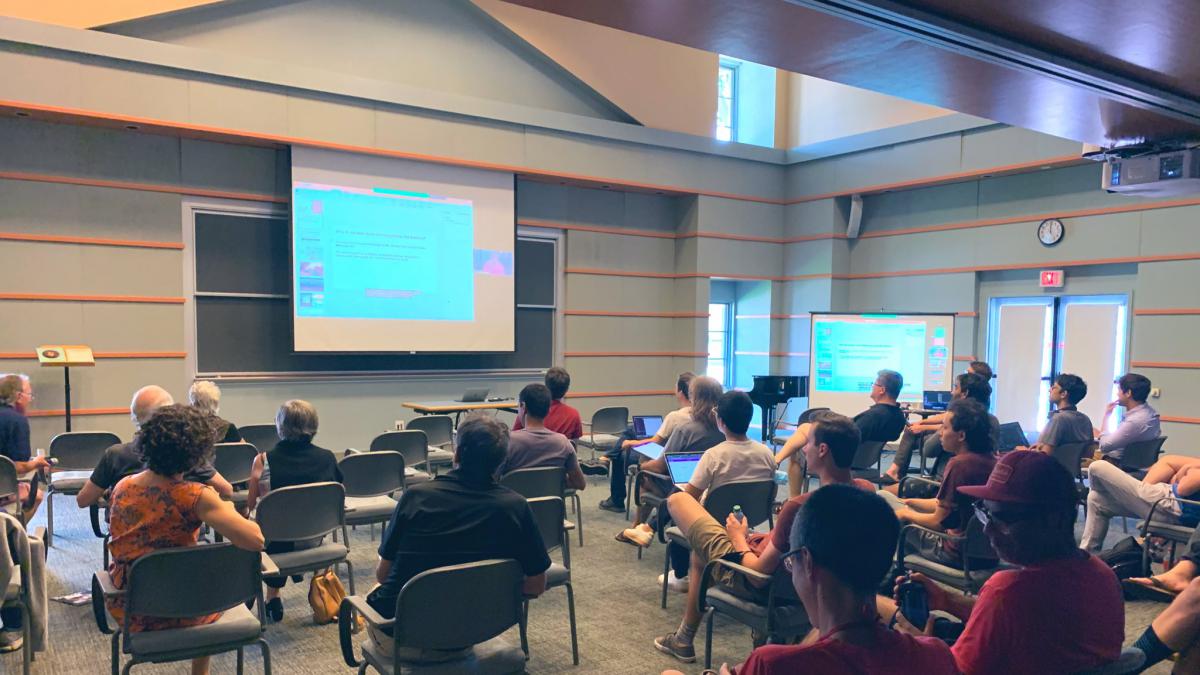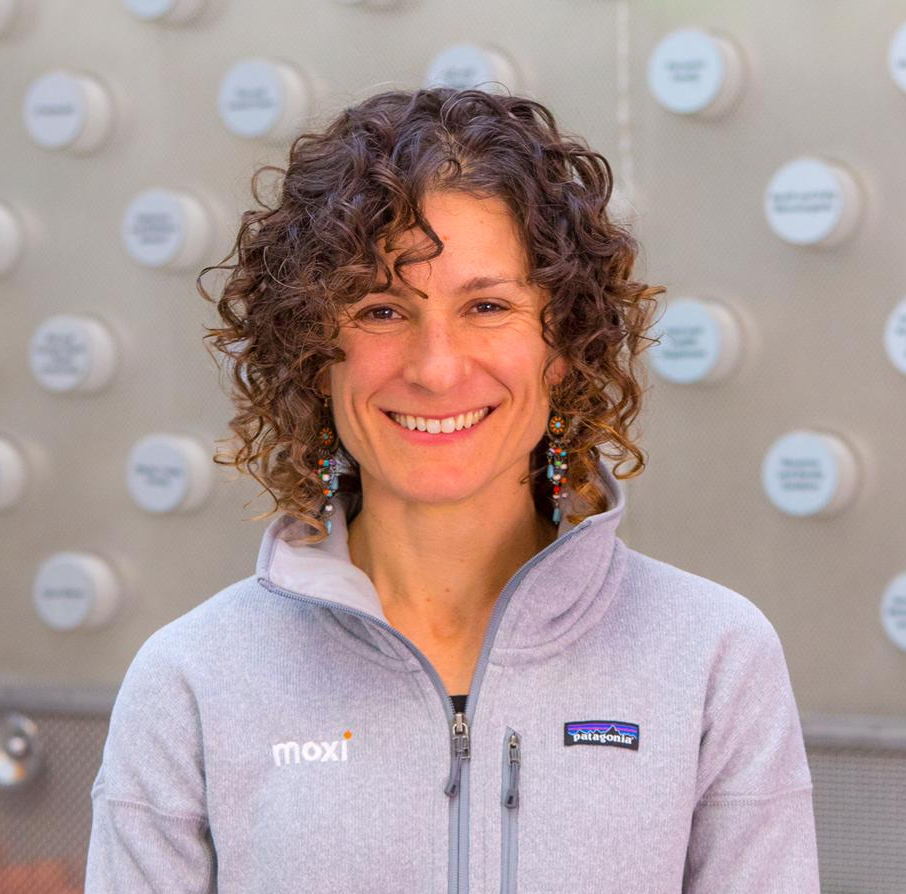The institute was at the forefront of campus reopening, and their approach provides a peek at what may come.
 Photo Credit:KITP
Photo Credit:KITP
The KITP quantitative biology program “Ecology and the Evolution of Microbial Communities” (ECOEVO) featured in-person lectures with remote participation for the first time in Kohn Hall
Every summer, KITP hosts a quantitative biology program and school. This year, the program happened in person with remote participation. Funded by the Gordon and Betty Moore Foundation, it kicked off in July 2021 as the first on-site event the institute has held since the pandemic began. The school, supported by the Kavli Foundation, ran fully remotely every morning, a successful model that also enabled those in Europe to benefit from the engagement.
“The program coordinators and the participants arrived with a lot of enthusiasm and energy,” said Maggie Sherriffs, KITP’s special programs and evaluation manager. “I think they were excited to be part of this experiment with us.”
The institute was at the forefront of campus reopening, and their approach provides a peek at what may come. In compliance with UC policy, KITP is accommodating only fully vaccinated visitors in Kohn Hall and the Munger Physics Residence, where many of the visiting scientists and their families live.
KITP faculty and staff worked alongside program coordinators to devise innovative solutions to continue hosting researchers during the pandemic, as their mission revolves around bringing together experts for programs. This involved lots of experimentation with streaming presentations, creating digital workspaces and fostering informal discussions.
KITP’s leadership intends to incorporate what was learned from this experience into their standard operations. KITP will include remote participation in all of its in-person events going forward; the current activities are the first test-case. It’s also an important time for remote participants, as many from outside the United States are unable to enter the country due to COVID travel restrictions.
Programs always have more applicants than Kohn Hall can accommodate, so many had to be turned away in years past with a ‘sorry letter.’ “We’re not going to send those letters anymore,” said KITP Director Lars Bildsten “Now we’re going to send them a letter saying: ‘You are welcome to join as a remote participant.’” Remote participants can view talks, ask questions and contribute to chats. Every program will also make use of digital workspaces such as Slack.
These changes will greatly expand the number of researchers the institute can include in its events, ultimately fostering more scientific collaboration. It will also be a boon for visiting researchers who may not be able to stay for the entire duration of a program.
“We want to keep the great things about the in-person KITP experience intact, but also allow people who can’t come to participate,” said Sherriffs
 Photo Credit: MOXI, The Wolf Museum of Exploration + Innovation
Photo Credit: MOXI, The Wolf Museum of Exploration + Innovation
KITP Special Programs and Evaluation Manager, Maggie Sherriffs
Naturally, things will be different than when everyone was remote. “We don’t want to disrupt the in-person experience,” said Deputy Director Mark Bowick. Visiting researchers have access to workspaces in Kohn Hall, participate in on-site events and engage in casual conversations in Kohn Hall’s courtyard and the outdoor areas of the Munger Physics Residence that remote participants will not be privy to.
That said, each program will have a unique character set by the community involved, as KITP learned over the pandemic. For instance, researchers at the first in-person program wanted to see their colleagues on Zoom during presentations. “They wanted to try their best to have the people outside on the same footing as the people inside. It has worked rather well,” Bildsten said.
Many different modes of collaboration emerged while events were digital: real-time features like recording presentations as well as asynchronous aspects like chatrooms. “You could view the in-person component as yet another mode of working,” Bowick said, “one of many possible ways of experiencing a program.”
The pandemic and a 10,000-gallon flood in March 2020 provided an opportunity to renovate Kohn Hall with accessibility and remote participation in mind. In addition to repairing about a quarter of the building, the institute incorporated new technology to facilitate hybrid programs. High quality cameras were added to the auditorium and large and small seminar rooms. The facilities also now boast audio loops in the auditorium and main seminar room for the hearing impaired. These consist of induction coils installed below the carpeting that send signals directly from the speaker’s microphone to the telecoil in the hearing aids of attendees in the room.
There will also be more hardware available for remote teaching. “It used to be a barrier to coming that you had to teach your class,” Bildsten said. “Now, faculty know how to teach remotely, so they can come to KITP and teach their class from here.”
The renovation also presented an opportunity to begin transitioning Kohn Hall to LED lighting, part of a broader effort on campus. The kitchen received updates, and the building’s public spaces have new carpet. Work has even commenced on reupholstering some of the institute’s well-worn furniture!
Author: Harrison Tasoff, Science Writer, UCSB Public Affairs
KITP Newsletter, Fall 2021
